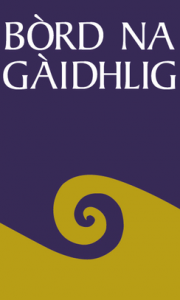News Release: New Grammatical Guidance for Gaelic

News Release
19 March 2019
New Grammatical Guidance for Gaelic
Bòrd na Gàidhlig and the University of Glasgow have today (19 March 2019) published new grammatical guidance to help aid Gaelic speakers, including teachers, broadcasters and other Gaelic professionals.
The 27-page document is the first attempt to draft collaborative grammatical guidance for today’s users with input from Gaelic language professionals, traditional speakers, and academic linguists.
The guidance will benefit all people who are working with Gaelic or learning Gaelic by providing a comprehensive, authoritative source of acceptable usage in modern Scottish Gaelic, and will provide the foundations for future work on a comprehensive grammar of the language.
The new resource, hosted by the University of Glasgow’s Digital Archive of Scottish Gaelic (DASG), covers 11 of the most challenging topics in Gaelic grammar as identified by a survey of Gaelic language professionals and teachers.
It was drawn up in response to a wide-ranging consultation project in 2013 (Dlùth is Inneach) in which Gaelic users and learners identified access to reliable guidance on modern Gaelic grammar as one of their most important needs.
The project to research and compile the guidance was funded by Bòrd na Gàidhlig and MGAlba, and carried out by an inter-university group of Gaelic linguistic researchers led by Professor Roibeard Ó Maolalaigh, Professor of Gaelic at the University of Glasgow.
Professor Ó Maolalaigh, who is also Vice Principal and Head of the College of Arts at Glasgow, said: “We are delighted that the fruits of this collaborative Soillse project have been published and made available to the Gaelic community.
“We hope that the clear authoritative guidance on some of the most challenging variation patterns in Gaelic grammar will strengthen the language and enhance the confidence of its speakers in navigating the inherent variation within the language.”
Dàibhidh Boag, Director of Language Planning and Community Developments at Bòrd na Gàidhlig said: “First of all, I would like to thank all the people and organisations that have contributed to this important project. The aim of the National Gaelic Language Plan is that Gaelic is used more often, by more people and in a wider range of situations. Increased confidence and increased use go hand-in-hand and this resource will assist people in using Gaelic more confidently and more often.”
“In addition to the guidance itself, we are working with Stòrlann Nàiseanta na Gàidhlig to produce a range of key resources and training packages to support its roll-out over the coming months. We also aim to develop the resource further and cover more of the grammar points that users have identified as challenging”
The research collaboration included the University of Glasgow, the University of Edinburgh and Sabhal Mor Ostaig / University of the Highlands and Islands, under the auspices of the Soillse network for research into Gaelic language and culture.
The work was supported by regular meetings with Bòrd na Gàidhlig’s Comataidh Comhairleachaidh Cànain, a group of traditional speakers from different parts of the Gàidhealtachd with wide experience in important domains of Gaelic language development, chaired by Jo MacDonald, who is also chair of MG ALBA’s Standards Committee (Comataidh Inbhean).
Jo MacDonald said: “Gaelic is a living and dynamic language and whilst I know that there is still work to be done to fulfil the needs of all users, I believe that we have developed a way of working that provides authoritative guidance where it is most needed and that is appropriate to the demands of the Gaelic community today and for the future.”
Evidence was gathered from traditional speakers in the Western Isles and from the usage of recent and contemporary writers of Gaelic as captured in DASG’s 30- million-word corpus of Scottish Gaelic.
Notes to Editors
For more information contact Aine Allardyce in the University of Glasgow Communications and Public Affairs Office on 0141 330 7126 or email aine.allardyce@glasgow.ac.uk
The guidance is available to download on the DASG website at https://dasg.ac.uk/grammar[:ga]
Brath Naidheachd


